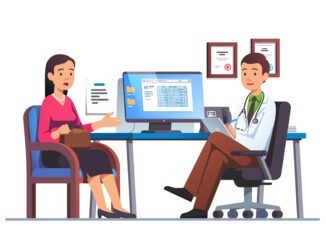The role of a PCN clinical director is more challenging than it has ever been before, yet we are about to see a huge turnover in those undertaking these roles. Why is the role so different now, and how can those taking it on for the first time now even hope to be successful?
CREDIT: This is an edited version of an article that originally appeared on Ockham
It may not feel like it, but it is now three years since we were first introduced to primary care networks (PCNs). They first appeared in the NHS Long Term Plan, published in January 2019, which was then quickly followed up with the new five-year GP contract the following month and the PCN direct enhanced services (DES) contract for general practice.
After three months of set up, PCNs were formally established on 1 July 2019. One of the requirements was that each PCN had a clinical director (CD) in place; many of these CDs agreed to take on the role for an initial term of three years.
Unfortunately, the initial funding of 0.25wte per 50,000 population was wholly inadequate for the workload and expectation placed upon these new leaders; this situation was not helped by the ongoing national refusal to make any funding available for PCN managers to lighten the burden on PCN CDs. Whilst the funding has, belatedly, been temporarily increased to one wte, and some, non-recurrent, funding has been made available for management support this year, this has never been done in a way that allows PCNs to invest more into PCN leadership on a permanent basis, or that enables those leaders to give up their other work and create more time for the role.
Big changes
The PCN CD role has changed immeasurably in the last three years. In their first year the, not insignificant, challenge was persuading practices to work together but, since then, PCN CDs have had to deal with COVID, the vaccination programme, a huge increase in staffing via the ARRS scheme, and an ever-increasing set of delivery requirements – all during a period of transition into integrated care systems.
Let’s not forget, all of this has been set within a context of general unease across the service in relation to PCNs. At a number of points across the last three years there have been threats of widespread resignations from the PCN DES – and that threat is still hanging following the ballot of November last year.
It is no surprise, then, that many of those who put themselves forward to be a PCN CD back in 2019 are saying that enough is enough, and that it is someone else’s turn to carry the baton now that the initial three-year term is up. The problem is that most of these individuals have grown and developed with the role over the last three years. They possess leadership skills and experience that they did not have when they started. Their PCNs need them in the CD role now more than they ever did – but the system has treated them in a way that means it is unsurprising that many do not want to continue.
And so we are in a position where, in many PCNs, someone new – or maybe even two new people – are taking on the role. The challenge for these new incumbents is even greater than it was for their predecessors because the role is so much bigger now, and the expectations of PCNs so much higher.
It will not be easy, and it will be down to both the local practices within a PCN and the local system to support this new wave of leaders so that they may also have a chance of success within the role.
It is with all of this in mind that myself, along with PCN CD Dr Hussain Gandhi and PCN expert Tara Humphrey, have set up PCN Plus. PCN Plus is a development programme for those taking on the PCN clinical director role. It provides training for new PCN leaders in how to be successful in the role.
You can find more information about PCN Plus here.


Be the first to comment